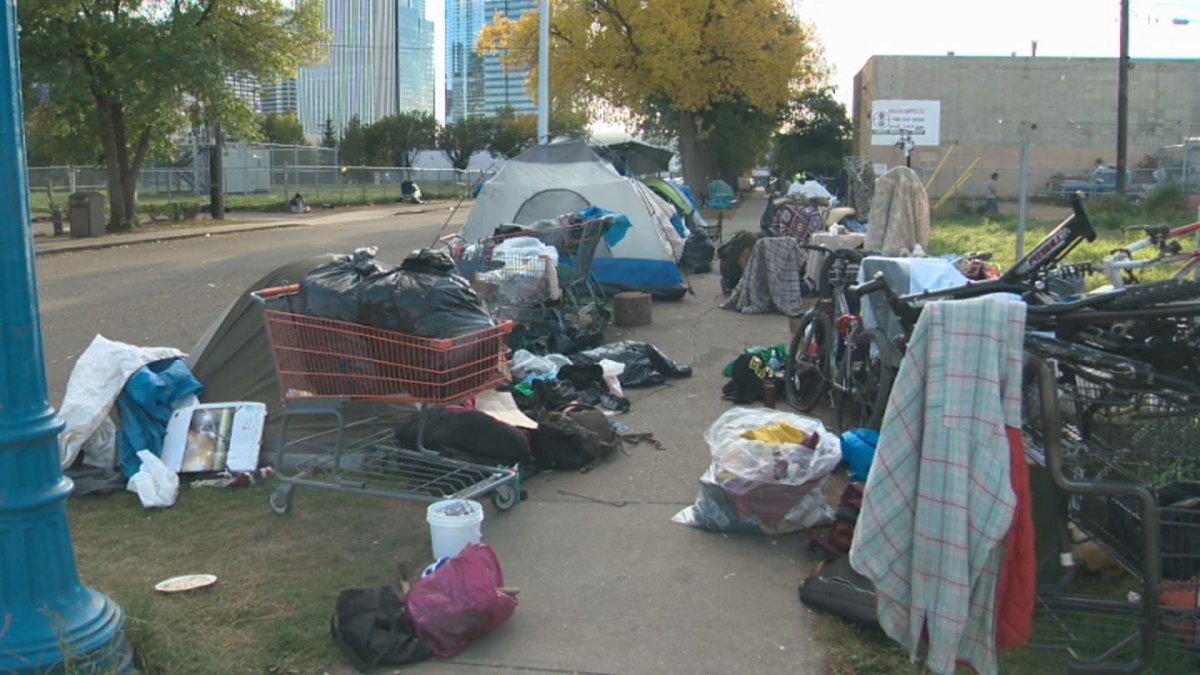A resident from the Alberta Avenue area of town has lost count of how many times the house across from her has been broken into. Not to steal — the house has been vacant for 13 years. What makes Virginia Potkins roll her eyes is the stance the city has taken on the situation.

City staff told council’s Urban Planning Committee Tuesday they can’t make a move on a problem property, if it’s properly boarded up, and the grass is kept trim.
“Can I say BS?” asked Potkins before the cameras in slightly more colourful language. “I can see when they go and board it up. The very next day, or even sometimes later that day someone has broken into it. They don’t check up on it, so I don’t believe that the follow up is happening.”
She said it leads to crime, dirty needles and other social problems, adding on her drive to City Hall, she’d never seen the ‘tent city’ so large.
Councillor Scott McKeen wants to take off the kid gloves, so the city can be less cautious and more aggressive in dealing with slum landlords.
“Why can’t we set up a CCTV camera across the street from one of these drug houses? Build a case that way,” McKeen told reporters after tabling a motion to have a game plan come back to city council in March of 2020.
“I just think the city and the province have to be more assertive and take some risks in challenging these bad actors.”
McKeen said there’s always been a reluctance among city lawyers to push the envelope, and take a case to court. He said the city doesn’t like the risk involved.
“Sometimes that authority doesn’t go far enough or doesn’t always meet with the expectations of what the neighbors would want to see,” said Christel Kjenner, the city’s housing and homelessness director.
“They really want us to take a proactive approach and be really creative and think out of the box,” she said. “That probably means more than an enforcement lens alone. It probably involves looking at strategies specifically targeting the gap in affordable housing for this group of people.”
The problem that was pointed out, if the city raids a rooming house, and closes it, as many as 20 hard to house individuals are on the street with no where to go. The issue then moves from neighborhood to neighborhood.
“You’re asking to shut down a McDonald’s franchise when there’s a craving for hamburgers and french fries,” said Greg Lane with the McCauley Community League.
“The problem is there’s a craving for the services they’re offering. There’s a need for housing for people that don’t have credit, that have criminal records, that have a number of issues that are barriers to them getting affordable housing,
“It’s not a shortage of affordable housing, it’s the barriers preventing them,” Lane said.
Lane said those individuals are hard to house for a reason, and rooming houses at $600 a month for a single room is their only hope.
“Those same barriers sometimes prevent them from getting help from 911, from calling the police after they’ve been raped or beaten and thrown into an alley,” he said. “Or they need medical attention. They won’t call EMS. They’d rather sit there in the street and bleed to death because they don’t want to get arrested on some proxy charge they had.”
Lane told the committee he wants jail or stiff financial penalties on the landlords. “Tax the hell out of them.”
One solution suggested by Mark Holmgren with the Edmonton Community Development Corporation would be to target the boarded-up properties first.
“Actually get rid of that problem and then create an asset that the community wants, like a duplex or a four-plex that attracts new residents.” Lane told the committee his and other organizations have found specific contractors who can build a safe, low-cost product.
McKeen’s motion calls for agencies like ECDC and others, as well as Edmonton Police and Alberta Health, to come up with a more aggressive approach to take over problem properties as well as find ways to achieve the city’s goal of 900 supportive housing units over the next five years.
The problem is, money the city was hoping for didn’t materialize in the provincial budget. Instead the province is granting Hope Mission $8 million for a shelter expansion.
“I have hope,” Potkins said. “I hope that something is done. I think the March deadline is kind of a little long, I wish it was going to be a little sooner like January — three months to see some sort of results. But I guess we’ll wait and see. I have hope.”







Comments